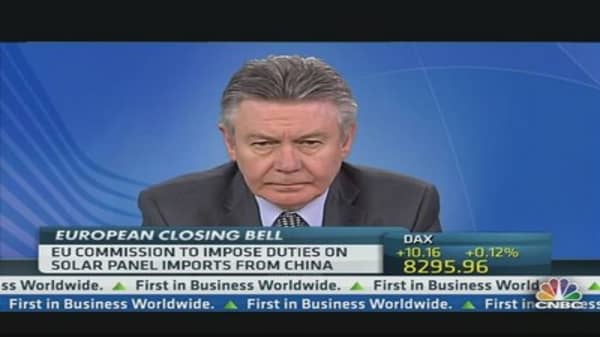China decided on Wednesday to hit Europe where it hurts by launching an investigation into European wine imports, in retaliation against a decision by the European Union (EU) on Tuesday to impose duties on Chinese solar panel imports.
China's Commerce Ministry said that Europe had "obstinately imposed unfair duties" and said the government had begun an anti-dumping and anti-subsidy probe into EU wines at the request of Chinese wine manufacturers, Reuters reported on Wednesday.
"The Commerce Ministry has already received an application from the domestic wine industry, which accuses wines imported from Europe of entering China's market by use of unfair trade tactics such as dumping and subsidies," the ministry said in a statement.
(Read More: The 'Elysee Premium': Wines Fetch Nearly $1 Million)
"This is impacted upon our wine industry, and (they have) asked the Commerce Ministry to begin an anti-dumping and anti-subsidy probe," it added.
The move is designed to hurt Europe's wine industry which has benefited in recent years from booming demand in China.
China imported 430 million liters of wine last year, of which more than two-thirds came from the EU, according to Chinese customs figures. Imports from France alone came to 170 million liters.
Europe's 11.8 percent levy on Chinese solar panels will start on Thursday and last for a transition period of 60 days before the full tariff will be imposed.
"We have decided to do this in a staged way so in the first 60 days the duty will be 11.8 percent and after 60 days we will go to 47 percent unless, unless in that period of 60 days we come to an amicable solution and that's what we're aiming at," Karel De Gucht, the European Union (EU) trade commissioner, told CNBC on Tuesday.
(Read More: EU Gives China Two Months to Resolve Solar Row)
"Giving the very high market share of Chinese producers in the European market it also gives the European market space to adapt to that new market situation," he added.





